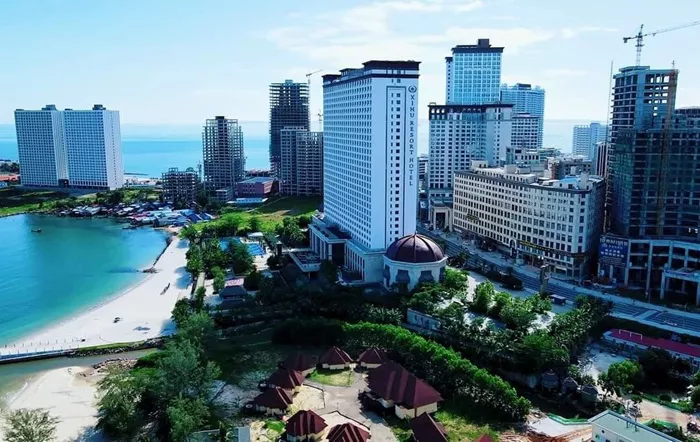Sihanoukville, a coastal city in Cambodia, is rapidly emerging as a focal point for logistics investment and infrastructure development. Its strategic location, near major economic powers like Thailand and Vietnam, has positioned it as an important trade gateway in Southeast Asia. However, despite these advantages, the city faces significant challenges that may hinder its ambitions of becoming a prominent forex trading center, especially when compared to established financial hubs such as Singapore and Hong Kong.
Key Challenges for Sihanoukville’s Forex Trading Ambitions
Lack of Financial Market Depth
Cambodia, including Sihanoukville, ranks poorly in the World Bank’s Logistics Performance Index (LPI), lagging behind its neighbors, Vietnam and Thailand. Furthermore, Cambodia’s trade volume is significantly lower than those of global financial centers, with its 2022 total trade value reaching only $52 billion, far below Vietnam’s $700 billion and Singapore’s $1.2 trillion. This low trade volume makes it challenging for Sihanoukville to support the liquidity and market depth required for a successful forex trading hub.
Underdeveloped Financial Infrastructure
While Sihanoukville has made progress in infrastructure, with the expansion of its deep-water port and the improvement of key roads, it still lacks the advanced technological infrastructure that modern forex centers rely on. Forex trading requires high-frequency trading algorithms, secure digital payment systems, and robust financial technologies, which Cambodia has not yet fully developed. Additionally, the country’s internet reliability remains an issue, with frequent power outages and unstable internet speeds that could disrupt financial transactions.
Regulatory Uncertainty
One of the most significant barriers to Sihanoukville’s development as a financial hub is the lack of a clear and established regulatory framework for forex trading. Unlike Singapore and Hong Kong, which have well-developed and trusted regulatory bodies like the Monetary Authority of Singapore (MAS) and the Hong Kong Securities and Futures Commission (SFC), Cambodia’s financial regulatory landscape remains in its infancy. This regulatory uncertainty increases risks for investors and traders, particularly concerning issues like money laundering and financial fraud.
Labor Force Gaps
A successful forex trading hub requires a highly skilled workforce, particularly in finance, economics, and technology. Unfortunately, Cambodia’s education system has not yet produced enough graduates to meet the demands of the forex industry. There are only two universities in Cambodia offering finance-related degrees, which limits the available talent pool. This talent shortage means that Sihanoukville would need to attract foreign experts in forex and fintech, increasing operational costs for potential investors.
Over-Reliance on China
Sihanoukville’s economy has been heavily reliant on Chinese investment and tourism, with Chinese nationals comprising more than 80% of the city’s visitors. This dependency makes the city vulnerable to economic fluctuations in China, and could further complicate its ambitions to become a diversified financial hub. Moreover, Sihanoukville faces fierce competition from other regional tourism destinations like Thailand’s Phuket and Vietnam’s Da Nang, which offer more developed infrastructure and better tourism services.
Will Sihanoukville Become a Forex Trading Hub?
The outlook for Sihanoukville becoming a leading forex trading center in the short term (2025-2030) is dim. The city’s financial infrastructure remains underdeveloped, its regulatory framework is lacking, and it is too dependent on China’s economic performance. These challenges are unlikely to be overcome in the next five years, making it improbable that Sihanoukville will establish itself as a forex trading center anytime soon.
However, looking further ahead (2030-2035), there is potential for Sihanoukville to evolve into a regional fintech hub, provided that the government implements significant financial reforms, improves investor protection, and develops the digital infrastructure necessary for modern financial markets. Without these reforms, however, the city will continue to struggle in attracting global forex firms.
For now, Sihanoukville should focus on solidifying its position as a logistics and manufacturing hub. By leveraging its strategic location and existing trade connections, the city can continue to grow in these areas while gradually improving its financial infrastructure. However, without substantial policy reforms and institutional investment, Sihanoukville is unlikely to emerge as a global forex trading center in the near future.
Related Topics:
How Can You Trade Foreign Exchange on Interactive Brokers?

